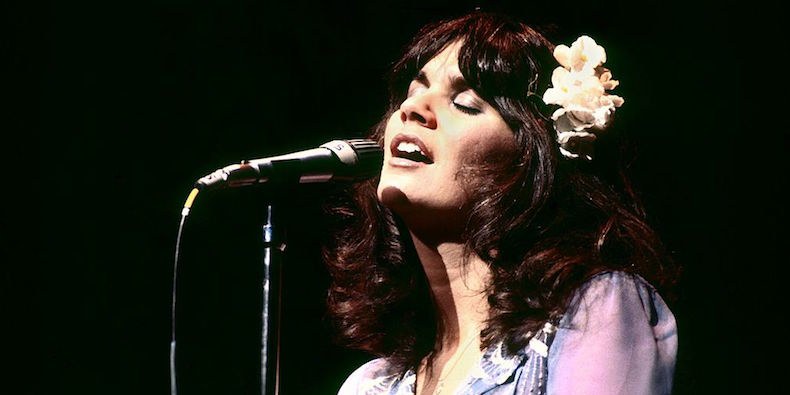At first, the music world wasn’t sure what to do with Linda Ronstadt.
Was she folk? … Or country? … Or rock?
Then people realized she was all of that and more – from 1940s pop to Spanish-language ballads to operettas. “Linda could literally sing anything,” Dolly Parton says in a documentary.
Now that film – fascinating and well-crafted – reaches CNN … which is where it started.
Jeff Zucker, the CNN chief, had suggested the idea to Courtney Sexton, senior vice president of his CNN Films unit. She linked with actor-turned-director James Keach, who made an acclaimed film about Glen Campbell.
Here were two perspectives: Keach, 72, was a longtime fan of Ronstadt, 73; Sexton, 42, knew “just a couple of songs. I had no idea of the breadth of her music.”
Keach’s recent films have a common point: Campbell lost his music, due to Alzheimer’s; Ronstadt quit singing, due to what was considered Parkinson’s disease, then re-diagnosed as progressive supranuclear palsy. “His main language was music,” Keach said, “and the same is true of Linda.”
If you ignore that, however, she’s had a blessed life. This is not one of those hard-knocks stories.
Ronstadt’s mother grew up in Flint, Mich., the daughter of an inventor whose almost-700 patents included early versions of a microwave, a grease gun, a toaster and – most profitably – a flexible ice-cube tray. And Ronstadt’s father was a manufacturer and Arizona rancher, with Mexican roots.
Both were singers. In the film, she describes a childhood spent “singing at the dinner table, singing with our hands in the dishwater.”
This was a free-range childhood; she got a pony at 4 and liked to roam the 10-acre ranch.
People weren’t surprised when she was singing in folk groups in high school … but were surprised when she quit college after one semester and headed to California to make music.
Her beachside life was sunny; the start of her musc career wasn’t. The lone exception was “Different Drum,” a song (by Mike Nesmith of the Monkees) Ronstadt had originally resisted. “It was a good thing they didn’t listen to me,” she says in the film, “because it was a huge hit.
Other hits were elusive, until she made a switch. “The catalyst to Ronstadt’s popularity and acclaim was Peter Asher,” says the Rolling Stone Encyclopedia of Rock ‘n’ Roll.
Asher was a “British invasion” veteran – half of Peter and Gordon, a friend of the Beatles – who helped her cross categories. Ronstadt hit the top-two in rock (“You’re No Good”), country (“I Can’t Help It If I’m Still In Love With You”) and both (“When Will I Be Loved?”).
She was a celebrity, small and baby-faced; she dated rock stars and Gov. Jerry Brown. “I love the way she was passionate and opinionated.”
That included music choices. “Not a lot of people had the guts to re-invent themselves,” Sexton said.
This was perpetual re-invention, from Spanish-language ballads (bringing three of her 12 Grammys) to 1940s classics. “She wanted to get those songs out of the elevators,” Asher says in the film
Ronstadt savored old music arranged and conducted by Nelson Riddle. “I didn’t know if he was still alive,” she says in the film. He was and their first album went triple-platinum.
She retired in 2011 (as the ailment started to affect her voices) and said she would “never sing another note.” But she let Keach follow her on a project with her kin. “She said, ‘I’ll try to sing with them,’” he recalled. So amid a cascade of old clips, the film has a brief, current moment of Ronstadt singing.
The movie convinced Sexton there are great stories in that generation. “We do find the era interesting.”
Keach is developing several such stories; his recent David Crosby film, he said, takes the form of an apology to all the people Crosby has wronged. “Nobody really wanted to talk about him. But everyone wanted to talk about Linda.”
Often, they talked fondly of her character and her talent. As Emmylou Harris put it in the film: “There’s just no one on the planet who ever had or will have a voice like Linda’s.”
– “Linda Ronstadt: The Sound of My Voice,” 9 p.m. and midnight ET Jan. 1, CNN ; same times Jan. 4
